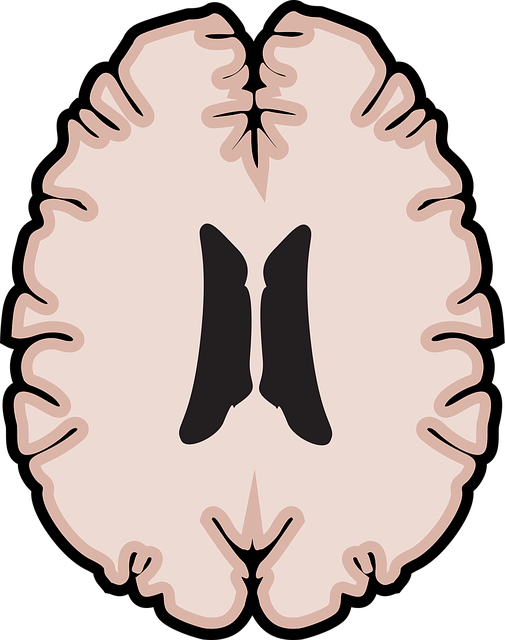Cognitive Behavioral Psychotherapy (CBT) is a powerful mental health psychotherapy approach that targets negative thought patterns and behaviors, offering goal-oriented solutions for depression, anxiety, PTSD, and OCD through challenging distorted thinking and adopting healthier coping mechanisms. Integrating CBT techniques into daily life enhances emotional well-being, and future advancements in technology promise increased accessibility and personalized interventions.
Cognitive Behavioral Psychotherapy (CBT) is a powerful approach transforming lives by addressing the interconnectedness of thoughts, feelings, and behaviors. This article delves into the core principles of CBT, offering insights on how our minds shape our reality. We explore techniques to identify and challenge negative thought patterns, modify maladaptive behaviors, and harness the power of positive change. From its proven benefits in mental health treatment to practical integration into daily life, CBT emerges as a dynamic tool for enhancing well-being.
Understanding Cognitive Behavioral Psychotherapy (CBT)

Cognitive behavioral psychotherapy, often abbreviated as CBT, is a highly effective form of mental health psychotherapy. It focuses on identifying and changing negative thought patterns and behaviors that contribute to emotional distress and mental health issues. By understanding the connection between thoughts, feelings, and actions, CBT empowers individuals to challenge and reframe distorted thinking, leading to improved mood and overall well-being.
This therapeutic approach is structured and goal-oriented, working collaboratively with clients to set achievable objectives. Through various techniques, such as cognitive restructuring, behavioral activation, and exposure therapy, CBT helps people gain insights into their thoughts and emotions, enabling them to develop healthier coping strategies. It has proven successful in treating a wide range of mental health conditions, including depression, anxiety disorders, post-traumatic stress disorder (PTSD), and obsessive-compulsive disorder (OCD).
Principles of CBT: Mind Over Matter

Cognitive Behavioral Therapy (CBT) is a powerful tool in the realm of mental health psychotherapy, focusing on the profound connection between thoughts, feelings, and behaviors. Its core principle revolves around the idea that our thoughts shape our emotions and actions, emphasizing the potential for individuals to gain control over their mental well-being. By identifying and challenging negative or distorted thought patterns, CBT empowers people to make positive changes in their lives.
This therapeutic approach encourages a conscious shift in one’s mindset, where individuals learn to recognize and modify self-defeating cognitive processes. Through structured sessions, therapists guide clients to understand the relationship between their thoughts, resulting in more balanced and adaptive emotions, ultimately leading to altered behaviors. CBT has been widely recognized for its effectiveness in treating various mental health conditions, making it a go-to option for those seeking evidence-based psychotherapy.
Identifying Negative Thought Patterns

Negative thought patterns are a common barrier to achieving and maintaining good mental health. Cognitive behavioral psychotherapy (CBT) helps individuals recognize and challenge these unhelpful thoughts, which often manifest as distorted beliefs or irrational assumptions. By identifying negative thought patterns, such as all-or-nothing thinking, catastrophizing, or jumping to conclusions, CBT enables people to gain a more balanced perspective.
Through careful introspection and guidance from a trained therapist, individuals can learn to catch these automatic negative thoughts and question their validity. This process involves exploring the evidence for and against these thoughts, considering alternative explanations, and developing more realistic and adaptive cognitive frameworks. By breaking free from negative thought patterns, individuals can improve their emotional well-being and enhance their problem-solving abilities in both daily life and challenging situations.
Challenging and Changing Beliefs

Cognitive behavioral psychotherapy (CBP) is a powerful tool for challenging and changing maladaptive beliefs that contribute to various mental health issues. This therapeutic approach focuses on identifying and modifying negative thought patterns and behaviors, which in turn can improve emotional well-being. By encouraging individuals to question their assumptions and replace them with more realistic and positive ones, CBP helps clients gain a healthier perspective on themselves, the world around them, and their interactions with others.
In this process, therapists guide patients to recognize that their thoughts, feelings, and behaviors are interconnected. For example, if someone believes they are not good enough, this belief might lead to feelings of anxiety or depression and subsequently influence their actions, such as avoiding social situations. CBP aims to disrupt this cycle by helping individuals understand how these beliefs were formed, challenge their validity, and develop more balanced alternatives. This transformative process is key to enhancing coping strategies and fostering better mental health.
Techniques to Modify Behavior

Cognitive behavioral psychotherapy (CBP) employs a range of powerful techniques to modify behavior, addressing root causes of mental health issues. Central to this approach is identifying and challenging negative thought patterns that lead to maladaptive behaviors. Through structured dialogue, therapists guide clients to recognize and reframe distorted thinking, replacing it with more realistic and positive perspectives.
One key technique is behavioral activation, which encourages individuals to engage in activities they used to enjoy but may have avoided due to their mental health condition. This reintroduction to meaningful pursuits can help restore a sense of purpose and improve overall well-being. Additionally, CBP incorporates skill-building exercises focused on coping strategies, problem-solving, and stress management, enabling individuals to navigate challenges more effectively and promote positive behavioral changes in their daily lives.
Benefits and Applications in Mental Health

Cognitive behavioral psychotherapy (CBP) offers a multitude of benefits for those seeking to improve their mental health. By focusing on identifying and modifying negative thought patterns and behaviors, CBP empowers individuals to take control of their emotional well-being. This evidence-based approach has proven effective in treating various mental health conditions, including depression, anxiety disorders, post-traumatic stress disorder (PTSD), and obsessive-compulsive disorder (OCD).
The applications of CBP are vast within the realm of mental health psychotherapy. It provides individuals with practical tools to challenge cognitive distortions, enhance coping strategies, and develop healthier behaviors. Through structured sessions, patients learn to recognize unhelpful thought processes and replace them with more realistic and positive ones. This process not only leads to immediate symptom reduction but also fosters long-lasting resilience, enabling individuals to navigate life’s challenges with greater ease and improved mental fortitude.
Integrating CBT into Daily Life

Integrating cognitive behavioral therapy (CBT) into daily life is a powerful step toward enhancing mental health and well-being. CBT encourages individuals to actively participate in their own healing process by identifying negative thought patterns and replacing them with healthier, more adaptive ones. This doesn’t mean completely overhauling your routine; instead, it involves incorporating simple yet effective strategies into everyday activities. For instance, practicing mindful awareness during mundane tasks can help cultivate present-moment focus, reducing anxious rumination.
Even something as basic as keeping a thoughts journal can be a game-changer. By jotting down negative or distorted thinking patterns, you begin to recognize and challenge them. This practice facilitates a deeper understanding of your emotional responses, empowering you to make conscious choices that promote positive mental health. Over time, these integrated CBT techniques become second nature, fostering resilience and a more balanced perspective in all aspects of life.
Future of CBT in Psychotherapy Practices

The future of cognitive behavioral psychotherapy (CBT) looks promising as it continues to evolve and integrate with emerging technologies in mental health psychotherapy. With advancements in artificial intelligence, virtual reality, and online platforms, CBT can now be delivered more flexibly and accessible, breaking down traditional barriers. Tele-CBT, for instance, allows individuals to receive therapy from the comfort of their homes, expanding reach and convenience.
Additionally, research into neuroplasticity suggests that CBT’s effectiveness in reshaping brain circuits could be further enhanced through personalized interventions tailored to individual neurobiological profiles. As our understanding of mental health deepens, CBT techniques are likely to become more precise and targeted, offering even greater benefits for those seeking improved mental well-being.
